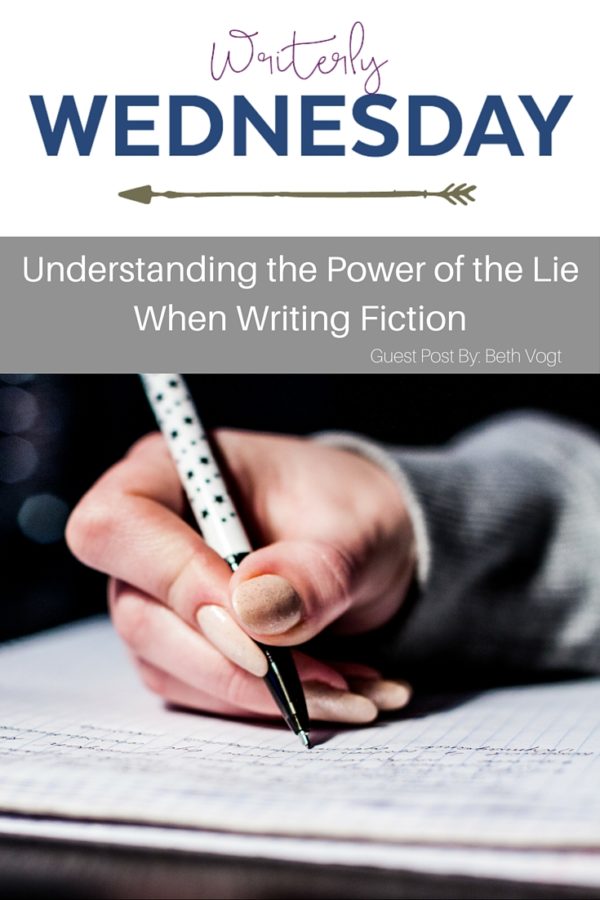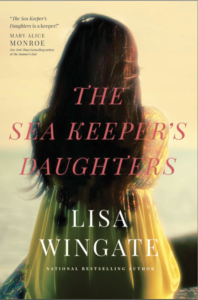Happy Wednesday, friends!
I'm super happy to introduce long time friend and talented author Beth Vogt.
I can't wait to see what Beth has to share with us today!

Lie to Me
We are taught early in life that it’s wrong to tell lies. It’s not until much later that we are taught not to embrace lies. But by then, it’s too late. We’ve listened to lies about ourselves and we believe them to be true. Lies like:
- You’re not pretty.
- You’re not smart.
- You’re not good enough.
- You’re not ever going to amount to anything.
While we often carry around a multitude of lies-that-we-believe-are-true, there is usually one lie that becomes the LIE that affects us more than all the others. This Lie is created by some experience that wounded us emotionally. Writers refer to this as the Dark Moment of our past.
A real-life example of a Dark Moment
In 2007, I experienced a life-threatening illness. At first, my doctor-husband Rob closed down his practice and stayed with me around the clock. My fever reached 104 and at times I didn’t recognize him. In the midst of all the initial fear and stress, Rob and our two oldest daughters lost track of our then six-year-old daughter. She sat outside my bedroom door, waiting for her daddy to come out and tell her that I had died. Unfortunately, we didn’t know this until she told us about five years later.
Was this a Dark Moment for my daughter? Absolutely. Was she wounded emotionally? Yes. The possible death of a parent is a major fear for children. At that moment, my daughter felt abandoned. What Lie did our daughter believe? That she wasn’t seen, that she wasn’t valued in a time of crisis. For several years after my illness, we noticed a marked insecurity in my daughter, especially when I left town for a writers conference or if I got sick in any way. When my husband and I discovered what had happened, we reassured her, praying with her about it.
Understanding the power of the Lie we believe is important in writing fiction, too.
Your imaginary characters need to believe a Lie -
and you, as the author, must determine what the Lie is.
Your character’s past – who they were before they appeared on page one of your manuscript – determines why they say certain things. Why they make certain decisions. Why they stiff-arm God. Why they want nothing to do with love.
Imagine wrapping a piece of twine around a wooden top and then releasing it to spin, spin, spin … and topple. The twine represents your character’s Lie. The Lie influences your character’s choices and beliefs because they believe the Lie is true.
In my latest release, Almost Like Being in Love, my heroine Caron believes the Lie that she’s just not good enough. Why? Because Caron never earned her father’s approval. Her Dark Moment, which involved working for her father during high school, involved Caron overhearing her father say something extremely hurtful about her – and Caron hears the echoes of his words to this day.
As a writer, we need to forget the adage to not tell lies.
You want to craft characters that readers care about, right? One key to doing that is to create the Lies your hero and heroine believe. Deepen your story by using the Lie to affect your characters emotionally because it impacts their relationships. Then weave in the spiritual truth and allow God to heal the Lie. In doing so, you’ve created true-to-life fictional characters. After all, we’ve all believed lies. And we also know the freedom in discovering and embracing the truth.
What about you? Are you telling your imaginary characters lies?
A GIVEAWAY FOR YOU!
Many thanks to Beth for this awesome post. Beth has also kindly offered to give away an autographed copy of Almost Like Being in Love to one lucky winner (U.S. entries only). All you have to do to be entered is answer Beth's question in the comment section below. If you aren't a writer, feel free to just say "hey" to be entered. Let's give Beth a really warm welcome.
Have a blessed Wednesday, friends.


 Today, I'd love to introduce a lovely writer, lady and friend. If you aren't familiar with
Today, I'd love to introduce a lovely writer, lady and friend. If you aren't familiar with 

